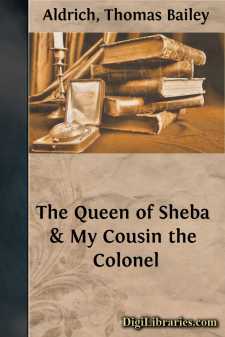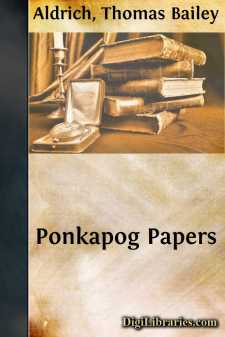Categories
- Antiques & Collectibles 13
- Architecture 36
- Art 48
- Bibles 22
- Biography & Autobiography 813
- Body, Mind & Spirit 142
- Business & Economics 28
- Children's Books 17
- Children's Fiction 14
- Computers 4
- Cooking 94
- Crafts & Hobbies 4
- Drama 346
- Education 46
- Family & Relationships 57
- Fiction 11829
- Games 19
- Gardening 17
- Health & Fitness 34
- History 1377
- House & Home 1
- Humor 147
- Juvenile Fiction 1873
- Juvenile Nonfiction 202
- Language Arts & Disciplines 88
- Law 16
- Literary Collections 686
- Literary Criticism 179
- Mathematics 13
- Medical 41
- Music 40
- Nature 179
- Non-Classifiable 1768
- Performing Arts 7
- Periodicals 1453
- Philosophy 64
- Photography 2
- Poetry 896
- Political Science 203
- Psychology 42
- Reference 154
- Religion 513
- Science 126
- Self-Help 84
- Social Science 81
- Sports & Recreation 34
- Study Aids 3
- Technology & Engineering 59
- Transportation 23
- Travel 463
- True Crime 29
A Rivermouth Romance
Categories:
Description:
Excerpt
At five o'clock on the morning of the tenth of July, 1860, the front door of a certain house on Anchor Street, in the ancient seaport town of Rivermouth, might have been observed to open with great caution. This door, as the least imaginative reader may easily conjecture, did not open itself. It was opened by Miss Margaret Callaghan, who immediately closed it softly behind her, paused for a few seconds with an embarrassed air on the stone step, and then, throwing a furtive glance up at the second-story windows, passed hastily down the street towards the river, keeping close to the fences and garden walls on her left.
There was a ghost-like stealthiness to Miss Margaret's movements, though there was nothing whatever of the ghost about Miss Margaret herself. She was a plump, short person, no longer young, with coal-black hair growing low on the forehead, and a round face that would have been nearly meaningless if the features had not been emphasized—italicized, so to speak—by the small-pox. Moreover, the brilliancy of her toilet would have rendered any ghostly hypothesis untenable. Mrs. Solomon (we refer to the dressiest Mrs. Solomon, whichever one that was) in all her glory was not arrayed like Miss Margaret on that eventful summer morning. She wore a light-green, shot-silk frock, a blazing red shawl, and a yellow crape bonnet profusely decorated with azure, orange, and magenta artificial flowers. In her hand she carried a white parasol. The newly risen sun, ricocheting from the bosom of the river and striking point blank on the top-knot of Miss Margaret's gorgeousness, made her an imposing spectacle in the quiet street of that Puritan village. But, in spite of the bravery of her apparel, she stole guiltily along by garden walls and fences until she reached a small, dingy frame-house near the wharves, in the darkened doorway of which she quenched her burning splendor, if so bold a figure is permissible.
Three quarters of an hour passed. The sunshine moved slowly up Anchor Street, fingered noiselessly the well-kept brass knockers on either side, and drained the heeltaps of dew which had been left from the revels of the fairies overnight in the cups of the morning-glories. Not a soul was stirring yet in this part of the town, though the Rivermouthians are such early birds that not a worm may be said to escape them. By and by one of the brown Holland shades at one of the upper windows of the Bilkins mansion—the house from which Miss Margaret had emerged—was drawn up, and old Mr. Bilkins in spiral nightcap looked out on the sunny street. Not a living creature was to be seen, save the dissipated family cat—a very Lovelace of a cat that was not allowed a night-key—who was sitting on the curbstone opposite, waiting for the hall door to be opened. Three quarters of an hour, we repeat, had passed, when Mrs. Margaret O'Rourke, née Callaghan, issued from the small, dingy house by the river, and regained the door-step of the Bilkins mansion in the same stealthy fashion in which she had left it.
Not to prolong a mystery that must already oppress the reader, Mr. Bilkins's cook had, after the manner of her kind, stolen out of the premises before the family were up, and got herself married—surreptitiously and artfully married, as if matrimony were an indictable offence.
And something of an offence it was in this instance. In the first place Margaret Callaghan had lived nearly twenty years with the Bilkins family, and the old people—there were no children now—had rewarded this long service by taking Margaret into their affections. It was a piece of subtile ingratitude for her to marry without admitting the worthy couple to her confidence....












